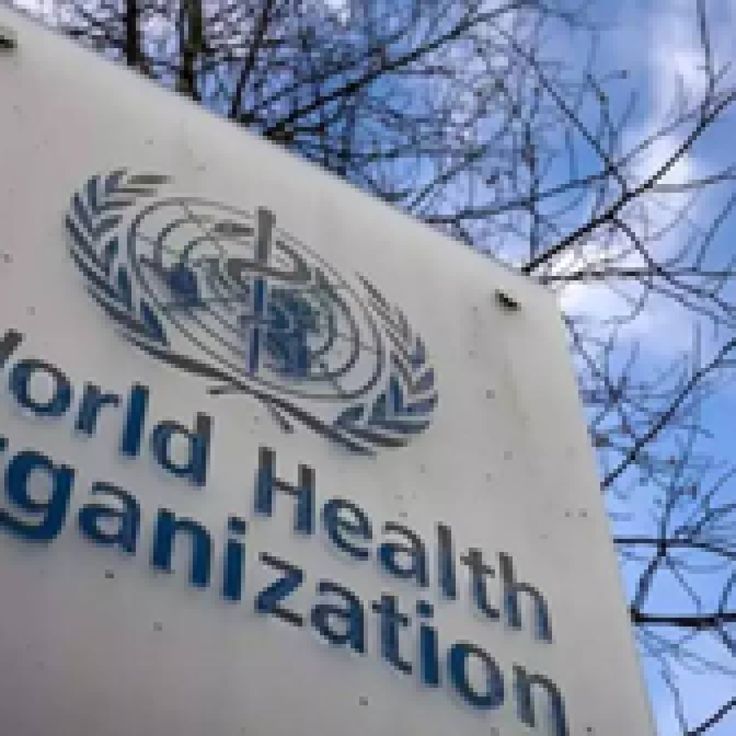Vaccination has long been recognized as one of the most effective public health interventions in the world, saving millions of lives annually. The World Health Organization (WHO) plays a pivotal role in global vaccination efforts, ensuring that life-saving vaccines reach people in every corner of the globe, regardless of their socioeconomic status or geographical location. The WHO’s vaccination programs are instrumental in promoting global health security by preventing the spread of infectious diseases, eradicating certain diseases, and responding to outbreaks swiftly and efficiently.
The Importance of Vaccination in Global Health
Vaccination is a cornerstone of global health security. It protects individuals from infectious diseases and contributes to herd immunity, reducing the overall prevalence of diseases in populations. Herd immunity is particularly crucial for protecting those who cannot be vaccinated due to medical reasons, such as immunocompromised individuals.
The impact of vaccination on global health is profound. Diseases that were once widespread and deadly, such as smallpox, polio, and measles, have been significantly reduced or eradicated in many parts of the world due to effective vaccination campaigns. Vaccination not only saves lives but also reduces the burden on healthcare systems, allowing resources to be allocated to other pressing health issues.
The WHO’s Role in Global Vaccination Efforts
The WHO has been at the forefront of global vaccination efforts for decades. Its mission is to promote health, keep the world safe, and serve the vulnerable. Through its vaccination programs, the WHO aims to achieve universal access to vaccines, particularly in low- and middle-income countries where access to healthcare is often limited.
The WHO’s vaccination programs are guided by the Global Vaccine Action Plan (GVAP), which was endorsed by the World Health Assembly in 2012. The GVAP outlines a framework for preventing millions of deaths by 2020 through more equitable access to vaccines. The plan focuses on six strategic objectives:
- All countries commit to immunization as a priority: Ensuring that all countries recognize the importance of immunization and include it in their national health agendas.
- Individuals and communities understand the value of vaccines: Promoting public awareness about the benefits of vaccination and addressing vaccine hesitancy.
- The benefits of immunization are equitably extended to all people: Ensuring that vaccines are available to everyone, regardless of location, socioeconomic status, or other barriers.
- Strong immunization systems are an integral part of a well-functioning health system: Strengthening health systems to support effective vaccine delivery.
- Immunization programs have sustainable access to predictable funding: Securing reliable funding sources to ensure the continuity of vaccination programs.
- Country, regional, and global research and development innovations maximize the benefits of immunization: Encouraging innovation in vaccine research and development to address emerging health threats.
Key WHO Vaccination Programs and Initiatives
The WHO has implemented numerous vaccination programs and initiatives aimed at combating specific diseases and improving overall vaccination coverage worldwide. Some of the most notable programs include:
1. The Expanded Programme on Immunization (EPI)
Launched in 1974, the Expanded Programme on Immunization (EPI) is one of the WHO’s most successful initiatives. The EPI’s goal is to ensure that all children have access to vaccines that protect them from vaccine-preventable diseases. Initially, the program focused on six diseases: tuberculosis, polio, diphtheria, tetanus, pertussis (whooping cough), and measles. Over the years, the EPI has expanded to include vaccines for hepatitis B, Haemophilus influenzae type b (Hib), pneumococcal disease, rotavirus, and human papillomavirus (HPV).
The EPI has made significant strides in increasing vaccination coverage worldwide. According to the WHO, global vaccination coverage has increased from less than 5% in 1974 to approximately 85% today. This increase has resulted in substantial reductions in the incidence of vaccine-preventable diseases and has saved millions of lives.
2. The Global Polio Eradication Initiative (GPEI)
The Global Polio Eradication Initiative (GPEI) is one of the most ambitious public health efforts ever undertaken. Launched in 1988, the GPEI is a partnership between the WHO, UNICEF, Rotary International, the U.S. Centers for Disease Control and Prevention (CDC), and the Bill & Melinda Gates Foundation. The goal of the GPEI is to eradicate polio worldwide.
Polio is a highly infectious disease that primarily affects children under the age of five. While there is no cure for polio, it can be prevented through vaccination. Since the launch of the GPEI, the number of polio cases has decreased by over 99%, from an estimated 350,000 cases in 1988 to just 175 reported cases in 2019.
The GPEI has faced numerous challenges, including political instability, logistical difficulties, and vaccine hesitancy in some regions. However, the program has made significant progress, with several regions, including the Americas, Europe, and Southeast Asia, being declared polio-free. The GPEI continues to work towards the goal of global polio eradication, with efforts focused on the remaining endemic countries: Afghanistan and Pakistan.
3. The Measles and Rubella Initiative (M&RI)
Measles and rubella are highly contagious viral diseases that can lead to severe complications and death. The Measles and Rubella Initiative (M&RI) was launched in 2001 to reduce measles and rubella-related deaths and eliminate the diseases in five WHO regions by 2020.
The M&RI is a partnership between the WHO, UNICEF, the American Red Cross, the United Nations Foundation, and the CDC. The initiative focuses on increasing vaccination coverage, strengthening surveillance systems, and conducting mass vaccination campaigns in high-risk areas.
The M&RI has achieved significant success in reducing measles and rubella cases worldwide. Since its launch, the initiative has vaccinated over 2 billion children and prevented an estimated 21 million deaths. Despite these achievements, challenges remain, particularly in regions with weak healthcare systems and low vaccination coverage. The WHO and its partners continue to work towards the goal of measles and rubella elimination.
4. The Global Vaccine Safety Initiative (GVSI)
Vaccine safety is a critical aspect of vaccination programs, as concerns about vaccine safety can lead to vaccine hesitancy and lower vaccination coverage. The Global Vaccine Safety Initiative (GVSI) was launched by the WHO in 2012 to ensure the safety of vaccines and maintain public trust in vaccination programs.
The GVSI focuses on strengthening national vaccine safety systems, improving global vaccine safety monitoring, and promoting research and innovation in vaccine safety. The initiative also works to improve communication about vaccine safety, ensuring that accurate information is available to the public.
The GVSI has been instrumental in addressing vaccine safety concerns, particularly in the context of new vaccines and emerging health threats. For example, the initiative played a key role in monitoring the safety of COVID-19 vaccines during the pandemic, providing reassurance to the public about the safety and efficacy of these vaccines.
Challenges and Opportunities in WHO Vaccination Programs
While the WHO’s vaccination programs have achieved remarkable success, several challenges remain. Addressing these challenges is crucial to ensuring that vaccination efforts continue to protect global health and promote health security.
1. Vaccine Hesitancy
Vaccine hesitancy is a significant challenge facing global vaccination efforts. Misinformation about vaccines, concerns about vaccine safety, and mistrust of healthcare systems contribute to vaccine hesitancy in many communities. The WHO has identified vaccine hesitancy as one of the top ten global health threats.
Addressing vaccine hesitancy requires a multifaceted approach, including public education, community engagement, and transparent communication about vaccine safety and efficacy. The WHO is working with governments, healthcare providers, and community leaders to build trust in vaccines and address the root causes of vaccine hesitancy.
2. Equitable Access to Vaccines
Ensuring equitable access to vaccines is a critical challenge, particularly in low- and middle-income countries. While vaccination coverage has increased globally, disparities remain, with some regions and communities facing significant barriers to accessing vaccines. These barriers include logistical challenges, inadequate healthcare infrastructure, and economic constraints.
The WHO is committed to addressing these disparities through initiatives such as the COVAX Facility, a global collaboration aimed at ensuring equitable access to COVID-19 vaccines. The COVAX Facility is working to provide vaccines to low- and middle-income countries, ensuring that all countries have access to the vaccines they need to protect their populations.
3. Emerging Infectious Diseases
Emerging infectious diseases, such as COVID-19, pose a significant threat to global health security. The WHO plays a critical role in responding to outbreaks of emerging infectious diseases by coordinating global vaccination efforts, supporting research and development, and providing guidance to countries on vaccination strategies.
The rapid development and deployment of COVID-19 vaccines demonstrated the importance of global collaboration in responding to emerging health threats. The WHO continues to work with partners to strengthen global preparedness for future outbreaks and ensure that vaccines are available to respond to emerging health threats.
4. Sustainable Funding
Sustainable funding is essential to ensuring the continuity of vaccination programs. Many vaccination programs rely on donor funding, which can be unpredictable and subject to political and economic changes. Securing long-term, predictable funding is crucial to maintaining and expanding vaccination coverage.
The WHO is working with governments, donors, and other stakeholders to develop sustainable financing mechanisms for vaccination programs. This includes exploring innovative financing approaches, such as results-based financing and public-private partnerships, to ensure that vaccination programs have the resources they need to protect global health.
The Future of WHO Vaccination Programs
The WHO’s vaccination programs have made significant strides in improving global health and promoting health security. However, the challenges facing these programs are complex and require ongoing efforts to address. The future of WHO vaccination programs will depend on continued global collaboration, innovation, and commitment to ensuring that vaccines are available to everyone, everywhere.
One of the key areas of focus for the future will be the development and deployment of new vaccines to address emerging health threats. Advances in vaccine technology, such as mRNA vaccines, offer new opportunities to respond to infectious diseases more quickly and effectively. The WHO will continue to play a leading role in supporting vaccine research and development, ensuring that new vaccines are safe, effective, and accessible to all.
Another important focus will be strengthening health systems to support vaccination programs. This includes improving vaccine delivery infrastructure, training healthcare workers, and enhancing surveillance systems to monitor vaccine-preventable diseases. Strengthening health systems will be essential to ensuring that vaccination programs are effective and sustainable.
Conclusion
The World Health Organization’s vaccination programs are a vital component of global health security. Through initiatives such as the Expanded Programme on Immunization, the Global Polio Eradication Initiative, and the Global Vaccine Safety Initiative, the WHO has made significant progress in reducing the burden of vaccine-preventable diseases and improving global health. However, challenges such as vaccine hesitancy, equitable access to vaccines, and emerging infectious diseases remain. Addressing these challenges will require continued global collaboration, innovation, and commitment to ensuring that vaccines are available to everyone, everywhere. By working together, we can build a healthier, safer world for all.



